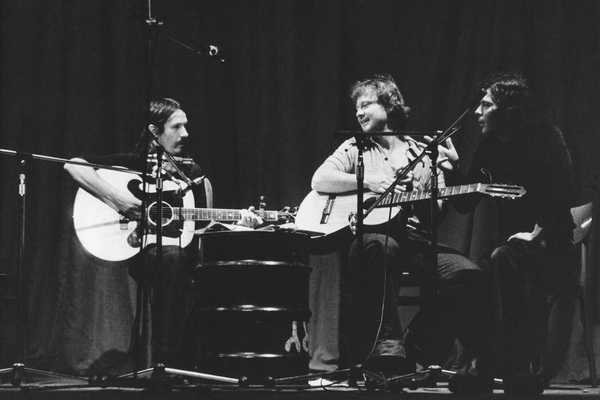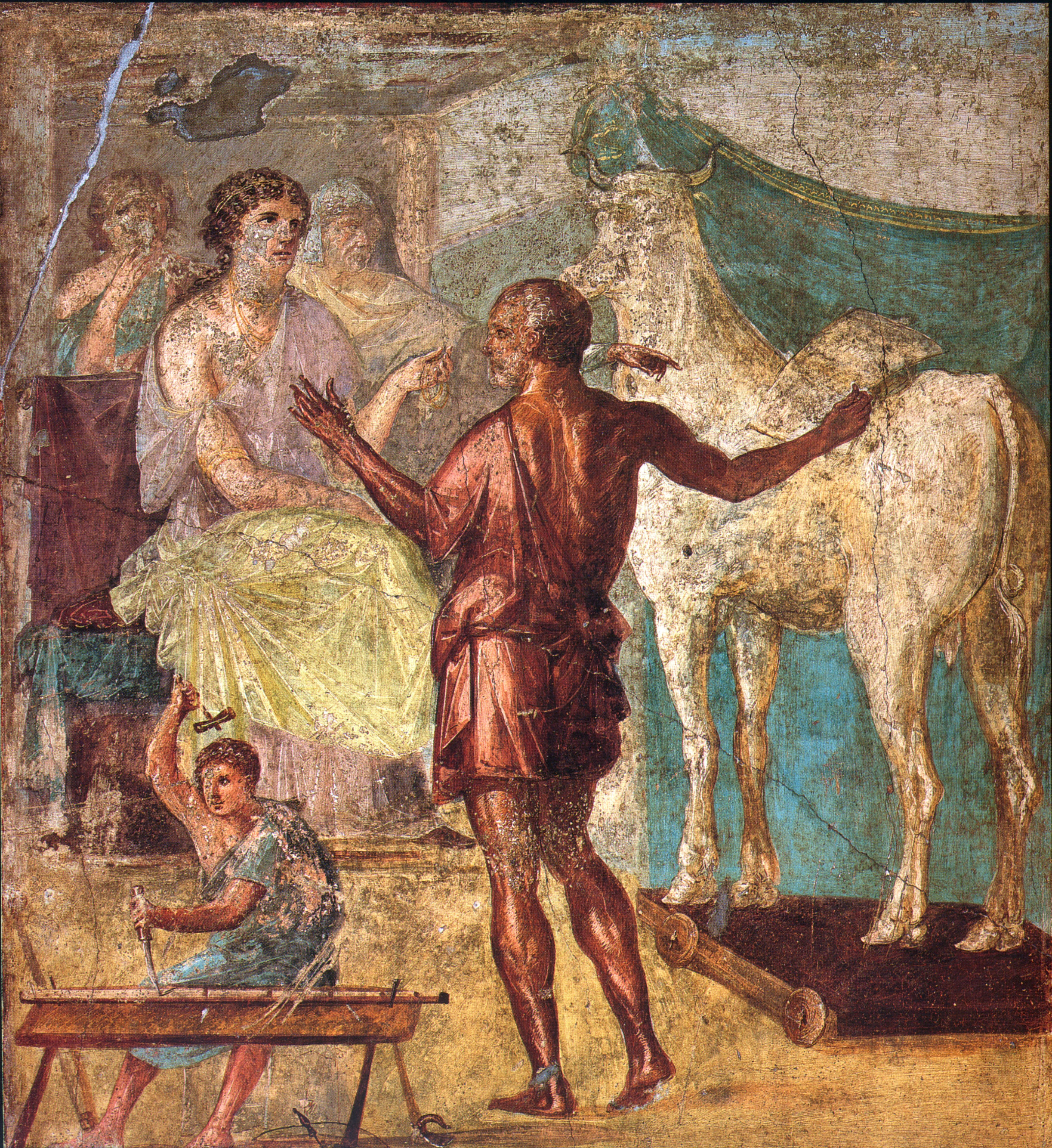|
They Cut Off The Little Boy's Hair
They Cut Off the Little Boy's Hair is the English-language version of Vladimír Mišík and Etc...'s first studio album, ''Etc...'', released in 1978 by Supraphon (the original, Czech version was released in 1976). The album is conceptually inspired by the poetry of Josef Kainar, especially his poem "Stříhali dohola malého chlapečka". Track listing Side A # Bazaar of Change (Bazarem proměn) 3:00 # Cinema (Biograf) 7:30 # Why Does the Rose Fade and Die (Proč ta růže uvadá) 4:00 # Tea and Crumpets (Jednohubky) 3:40 Side B # Where's My Desk Gone? (Kde je můj stůl?) 3:40 # They Cut Off the Little Boy's Hair (Stříhali dohola malého chlapečka) 3:40 # Lady Vamp 3:10 # I Have a Date at Half Past Four (Já mám schůzku o půl páté) 3:10 # Son of Daedalus In Greek mythology, Daedalus (, ; Greek: Δαίδαλος; Latin: ''Daedalus''; Etruscan: ''Taitale'') was a skillful architect and craftsman, seen as a symbol of wisdom, knowledge and power. He is the father ... [...More Info...] [...Related Items...] OR: [Wikipedia] [Google] [Baidu] |
Vladimír Mišík
Vladimír Mišík (born 8 March 1947) is a Czech musician and politician. He is the founder or co-founder of the bands Matadors, Blue Effect, and Etc.... Career Music Mišík founded his first band, Uragán, as a teenager. Later, he became the lead singer of Komety, where he met Radim Hladík, with whom he also played in Fontána (later known as The Matadors). He also sang in Karel Duba's band. In 1968, Mišík and Hladík co-founded the band Blue Effect. In 1970, Mišík left Blue Effect and became a member of Flamengo, with whom he recorded ''Kuře v hodinkách'', the only studio album the band released. The record, published in 1972, was banned by the Communist regime under Normalization and the group broke up the same year. During this period, Mišík also briefly sang with Energit. In 1974, he founded his own band, called Etc..., with which he is active to this day. He also occasionally performed with Vladimír Merta and Jan Hrubý in the folk rock band Čundrgrund. ... [...More Info...] [...Related Items...] OR: [Wikipedia] [Google] [Baidu] |
Etc (Czech Band)
Etc... is a Czech rock band from Prague, formed in 1974 by singer and guitarist Vladimír Mišík. Various musicians have rotated through the group's ranks, including violist Jan Hrubý ( Framus Five), bassist Jiří Veselý (Stromboli, Žlutý pes), guitarist Petr "Kulich" Pokorný (Framus Five, Žlutý Pes), drummer Ivan Kadaňka, bassist/cellist Jaroslav Olin Nejezchleba, as well as bassists Vladimír Padrůněk and Vladimír Guma Kulhánek. Between 1982 and 1985, the group was banned from performing by the Communist government. In 2010, Etc... was inducted into the Beatová síň slávy (Beat Hall of Fame) and released the album ''Ztracený podzim''. In 2011, the group, minus Vladimír Mišík, released a collaboration album with Vladimír Merta, titled ''Ponorná řeka''. Band members Current * Vladimír Mišík – guitar, vocals * Petr "Kulich" Pokorný – guitar * Pavel Skála – guitar, vocals * Jiří Zelenka – drums, vocals * Vladimír Pavlíček – vio ... [...More Info...] [...Related Items...] OR: [Wikipedia] [Google] [Baidu] |
Supraphon
Supraphon Music Publishing is a Czech record label, oriented mainly towards publishing classical music and popular music, with an emphasis on Czech and Slovak composers. History The Supraphon name was first registered as a trademark in 1932. The name was used for the label of domestic albums produced for export by Ultraphon company. Post World War II Ultraphon was nationalized and changed its name to Gramofonové závody. In 1961 the name was changed to Gramofonové závody – Supraphon and later just to Supraphon in 1969. In Czechoslovakia, it was one of the three major state-owned labels, the other two being Panton and Opus. Panton is currently a division of Supraphon; Opus (operating in Slovakia) became independent after break-up of Czechoslovakia and was acquired by Warner Music Group in 2019. Catalogues The artistic direction of the firm gave rise to a broad catalogue of titles which systematically mapped out the works of Bedřich Smetana, Antonín Dvořák, Leoš ... [...More Info...] [...Related Items...] OR: [Wikipedia] [Google] [Baidu] |
Josef Kainar
Josef Kainar (29 June 1917 in Přerov, Austria-Hungary – 16 November 1971 in Dobříš, Czechoslovakia) was a Czech poet, lyrics writer, dramatic author and translator, but also a musician, illustrator, artist and journalist. He was a member of artistic group Skupina 42 and literary group Ohnice. Biography Josef studied Czech and French languages at Charles University in Prague between 1938 and 1939. After the closure of colleges during World War II he undertook several jobs. He worked as a script editor in Divadlo satiry. He also worked as a journalist; his jokes, images and poetry were published in the newspaper Rovnost. After the war he worked in radio, movies and the theater. For example, he created a so-called ″rozhlásky″ for the Czechoslovak Radio; this was news for younger listeners. After 1947 he devoted himself fully to literature. He was also musically talented; he played in concerts on piano, guitar and violin. His style was based above all in jazz and ... [...More Info...] [...Related Items...] OR: [Wikipedia] [Google] [Baidu] |
Crumpets
A crumpet () is a small griddle bread made from an unsweetened batter of water or milk, flour, and yeast, popular in the United Kingdom, Canada, New Zealand, South Africa and Australia. Crumpets are regionally known as pikelets, a name also applied to a thinner, more pancake-like griddle bread; a type of the latter is referred to as a ''crumpet'' in Scotland. History and etymology Crumpets have been variously described as originating in Wales or as part of the Anglo-Saxon diet,Ann Hagen, A Handbook of Anglo-Saxon Food Processing and Consumption, 1992, p. 20 based on proposed etymologies of the word. In either case, breads were, historically, commonly cooked on a griddle wherever bread ovens were unavailable. The ''bara-planc'', or griddle bread, baked on an iron plate over a fire, was part of the everyday diet in Wales until the 19th century.''Notes & Queries'', 3rd. ser. VII (1865), 170 Small, oval pancakes baked in this manner were called ''picklets'', a name used for the ... [...More Info...] [...Related Items...] OR: [Wikipedia] [Google] [Baidu] |
Daedalus
In Greek mythology, Daedalus (, ; Greek: Δαίδαλος; Latin: ''Daedalus''; Etruscan: ''Taitale'') was a skillful architect and craftsman, seen as a symbol of wisdom, knowledge and power. He is the father of Icarus, the uncle of Perdix, and possibly also the father of Iapyx. Among his most famous creations are the wooden cow for Pasiphaë, the Labyrinth for King Minos of Crete which imprisoned the Minotaur, and wings that he and his son Icarus used to escape Crete. It was during this escape that Icarus did not heed his father's warnings and flew too close to the sun; the wax holding his wings together melted and Icarus fell to his death. Epigraphic evidence The name ''Daidalos'' appears to be attested in Linear B, a writing system used to record Mycenaean Greek. The name appears in the form ''da-da-re-jo-de'', possibly referring to a sanctuary. Family Daedalus's parentage was supplied as a later addition, with various authors attributing different parents to him. Hi ... [...More Info...] [...Related Items...] OR: [Wikipedia] [Google] [Baidu] |


